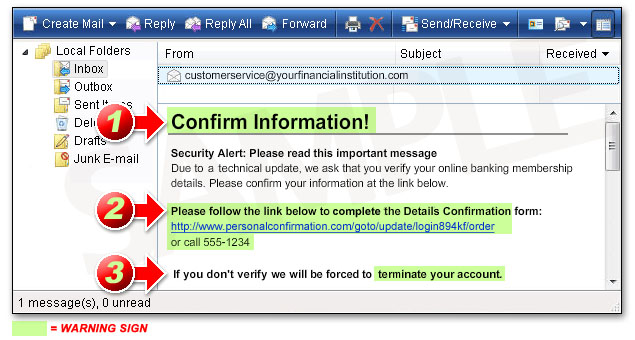Phishing Emails
Phishing is a type of online scam that targets people by sending them an e-mail that appears to be from a well-known source – an internet service provider, a bank, or a mortgage company, for example. It asks the person to provide personal identifying information. Then a scammer uses the information to open new accounts, or invade the consumer’s existing accounts.
How to spot Phishing and other email scams
- Any email requesting personal information, or asking you to verify an account, is usually a scam... even if it looks authentic.
- The email may instruct you to click on a link, or call a phone number to update your account or even claim a prize.
- The message will often threaten a dire consequence if you don’t respond immediately, such as closing your account.
These are clear signs that someone is “Phishing” for your information.

Follow these steps to avoid email scams
- Never respond to any email asking for confidential information, even if it appears urgent.
- Never click on a link from an email. Instead, type the known Website address into your Internet browser.
- Do not call any phone number provided in a suspicious email. It could be a fake phone number.
- Always use anti-virus and anti-spyware software on your computer.
Remember, email is not a secure form of communication. So feel free to use your email, but don’t use it to send or receive confidential information. And if you follow the four basic steps listed, you can protect yourself from most phishing and other email scams.


